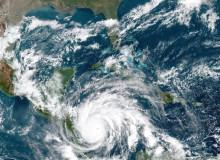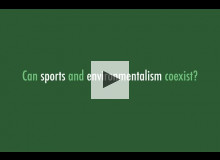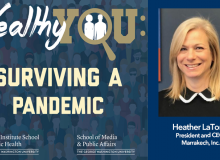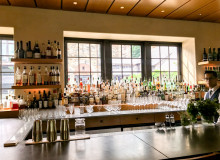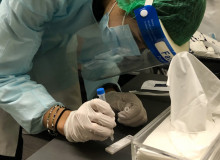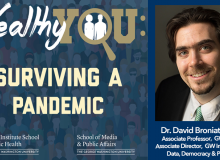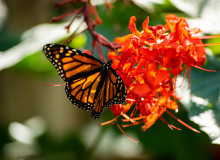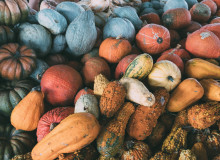Green Living
Northwestern University
Global warming may make infectious diseases such as COVID-19 more widespread by changing disease progression and interaction among people, warn health and climate experts. Ester Wells reports for Medill.
The George Washington University
With the top 200 stadiums in the U.S. drawing nearly 181 million visitors annually pre-COVID, this placed a large strain on energy demands, water systems, and emitted gross amounts of greenhouse gases.
Founding Director, Planet Forward
The COVID-19 pandemic has been a challenging time for all of us, but for none more than people with intellectual or developmental disabilities.
The George Washington University
To lower their environmental impact, restaurants are transitioning their operations to be more sustainable and climate friendly.
Planet Forward Senior Correspondent
I can tell you, without a shred of uncertainty, that where I am today is just about the farthest from where I had expected myself to be a year ago.

(Photo by Hammer & Tusk/Unsplash)
University of Pennsylvania
Virtual ecotourism is an alternative to travel during the pandemic, as well as an option for better environmental conservation.
Founding Director, Planet Forward
Dr. David Broniatowski, the Associate Director of the George Washington University Institute for Data, Democracy & Politics, shares his research on the misinformation and disinformation around COVID.
Planet Forward Correspondent | Eckerd College
Here are seven ways to get started on reducing your environmental impact that are easy on you and your wallet.
Planet Forward Correspondent | University of Wisconsin-Madison
The farmers market is, if anything, a quintessential unifier for communities. But this year, for many, it looked different.
The George Washington University
To me, progress looks a lot like the contents of my makeup bag. And no, I don’t say that because I’ve finally mastered the perfect smokey eye.

